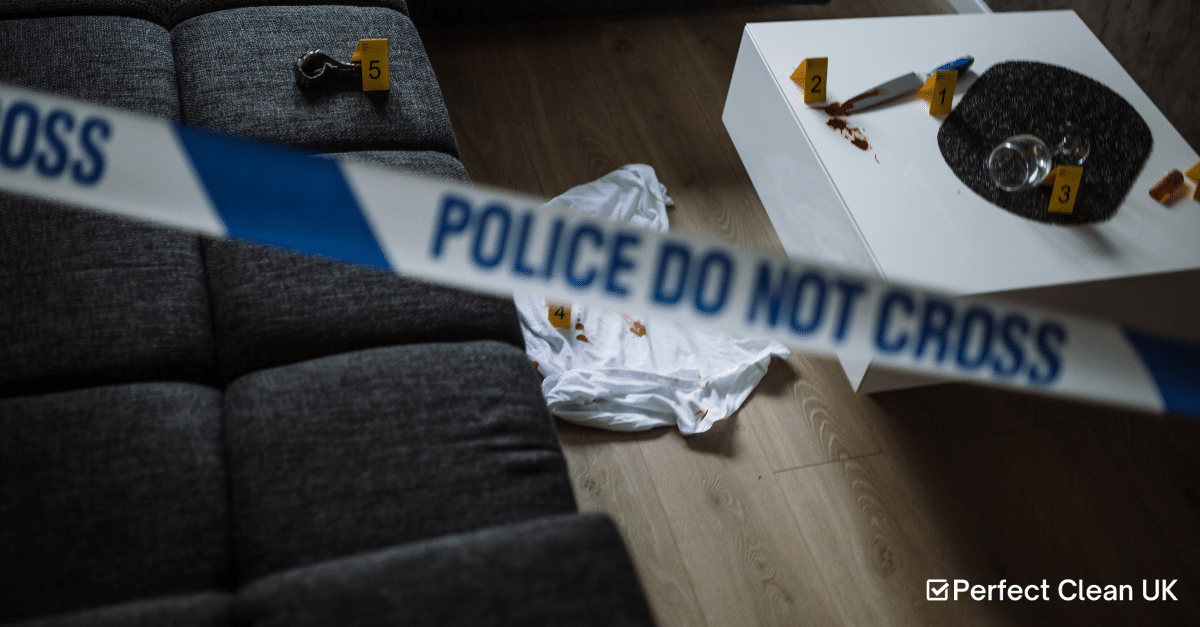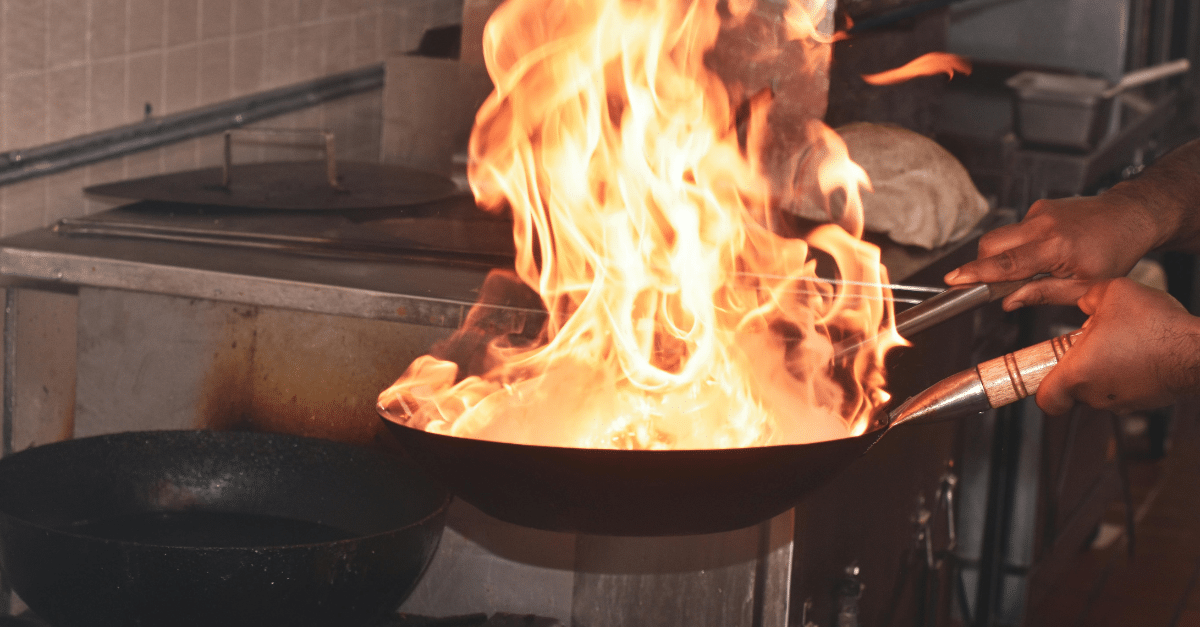Crime Scene Cleanup UK: What You Need to Know About Professional Forensic Cleaning
When tragedy strikes, the aftermath often leaves families and property owners facing an overwhelming situation they’re unprepared to handle. Crime scene cleanup in the UK isn’t simply another cleaning job. It’s a specialised service that combines technical expertise with genuine compassion for those affected by traumatic incidents.
The difference between standard cleaning and professional crime scene cleanup is crucial. Whilst routine janitorial work handles everyday dirt and dust, scene cleanup requires trained professionals to safely manage biohazardous materials. A skilled crime scene cleaner UK doesn’t just restore spaces; they help families move forward by handling the practical and emotional burden of remediation.
What makes this work particularly important is that UK law places responsibility for scene cleanup on property owners, not authorities. This means knowing how to find and work with experienced professionals becomes essential knowledge for anyone facing this situation.
What Exactly is Crime Scene Cleanup?
Let’s be straightforward about what crime scene cleanup involves. It’s the professional remediation of spaces contaminated by biological hazards following traumatic events including homicides, suicides, accidents, unattended deaths, or disease outbreaks.
The challenge isn’t just what you can see. Blood and bodily fluids can harbour dangerous pathogens like HIV and hepatitis that remain on surfaces long after an incident. These microscopic threats might be invisible, but they’re genuinely hazardous. That’s why attempting DIY cleanup isn’t just inadvisable; it’s genuinely risky.
Professional forensic cleaning uses specific chemicals and equipment validated to eliminate these threats at microscopic levels. It’s science-based, regulated, and built on proven protocols rather than guesswork.
Why You Can’t Handle This Alone
Here’s the reality: attempting crime scene cleanup yourself exposes you to serious health risks. Beyond personal safety, improper handling of biohazardous waste violates Environmental Protection Act regulations, potentially leading to fines or legal consequences.
Professional crime scene cleaners UK navigate these legal and health complexities so families don’t have to. They understand what materials need removal, how to dispose of them legally, and which disinfectants actually work for biological contamination.
The Real Work of a Crime Scene Cleaner UK
Being a crime scene cleaner isn’t glamorous, but it’s genuinely important work that requires specific skills and character traits.
Skills That Matter
A capable crime scene cleaner UK needs more than cleaning experience. Here’s what actually matters:
Technical Knowledge involves understanding how to handle bloodborne pathogens, apply disinfectants correctly, and operate specialised equipment. Many professionals pursue IICRC certification or similar qualifications in biohazard remediation.
Regulatory Awareness means knowing HSE standards, waste classification rules, and environmental disposal requirements. This isn’t optional; it’s the foundation of legitimate professional practice.
Equipment Competence requires operating HEPA-filtered vacuums, electrostatic disinfection systems, and industrial extraction machinery. This requires genuine training, not just willingness.
Legal Literacy encompasses understanding how environmental regulations apply to contaminated waste disposal. A professional scene cleanup provider ensures every step complies with UK law.
Emotional Intelligence represents perhaps the most important quality. Recognising that families are traumatised, maintaining professionalism paired with genuine human compassion, and treating people with dignity whilst maintaining appropriate boundaries are all essential.
What the Job Actually Involves
A typical day for a crime scene cleaner includes several key responsibilities:
Working 24/7 schedules because incidents don’t happen during business hours. Someone needs to respond rapidly, and professional services do exactly that.
Assessing contamination extent when arriving at a property. Every situation differs, requiring custom remediation plans rather than one-size-fits-all approaches.
Wearing comprehensive protective equipment including double-layered gloves, fluid-resistant suits, and respiratory protection, because exposure risks are genuine, not theoretical.
Removing contaminated materials that cannot be disinfected. Carpeting, upholstered furniture, and porous materials often require disposal at licensed facilities.
Applying approved disinfectants systematically across all affected surfaces, ensuring adequate contact time for pathogens to be eliminated.
Addressing lingering odours through enzymatic treatments and air purification, because families need their homes to feel normal again.
Documenting everything meticulously for property owners, insurance companies, and relevant authorities.
How Professional Scene Cleanup Actually Works
The process follows structured protocols developed through experience and validated by science.
Initial Response
When you contact a professional crime scene cleanup service, they gather information about what occurred, which areas are affected, and any urgent concerns. Many services pride themselves on rapid response, sometimes arriving within hours rather than days.
Upon arrival, the cleaner conducts a proper assessment. This determines what materials need removal, which surfaces require treatment, what equipment will be necessary, and roughly how long the job will take.
Protection and Preparation
Before any cleaning begins, the professional dons comprehensive protective equipment. Double-layer gloves, fluid-resistant gowns, respiratory protection, and shoe covers aren’t unnecessary precautions; they’re essential for safety.
The work site is prepared to prevent cross-contamination. This might involve isolating certain areas, managing access, or setting up disposal stations for contaminated materials.
Removing Contaminated Materials
Hard surfaces can potentially be cleaned and disinfected. But porous materials like carpeting, upholstered furniture, or affected drywall typically can’t be adequately treated. These materials require removal and disposal at licensed facilities following Environmental Protection Act regulations.
The Cleaning Process
Here’s where forensic cleaning becomes important. The professional applies EPA-approved disinfectants specifically validated for eliminating bloodborne pathogens. This isn’t casual spraying; it’s systematic treatment of every affected surface, working top to bottom to prevent contamination spread.
Disinfectants require specific contact times to work effectively. A trained professional ensures adequate dwell time rather than just wiping surfaces quickly. Often multiple applications are needed for thorough decontamination.
Industrial equipment, including HEPA-filtered extraction systems, electrostatic sprayers, and industrial cleaning machines achieves decontamination at levels ordinary cleaning cannot match.
Addressing Odours
Biological decomposition creates persistent odours. Professional remediation tackles this through enzymatic treatments that break down odour-causing compounds, activated charcoal absorption, and HEPA air filtration. Some services use ozone generation in unoccupied spaces for particularly stubborn odours.
Waste Disposal and Compliance
All contaminated materials must be transported to licensed facilities equipped for biohazardous waste. Professional crime scene cleanup services maintain proper documentation and ensure regulatory compliance throughout disposal.
Understanding Forensic Cleaning: The Science
Forensic cleaning represents a legitimate discipline combining chemistry, microbiology, and practical experience.
The Hidden Threat
Blood and bodily fluids carry pathogens you cannot see. These microscopic organisms survive on surfaces, sometimes for extended periods, particularly in protected environments like beneath carpeting or inside seams.
Professional forensic cleaning targets these invisible hazards through evidence-based decontamination rather than assuming visible cleanliness means biological safety.
Proving It Works
Leading crime scene cleanup providers use ATP (Adenosine Triphosphate) testing and similar microbiological validation. These aren’t marketing gimmicks; they’re objective measurements confirming decontamination effectiveness. You get actual proof that the space is biologically safe, not just someone’s assurance.
Meeting Standards
Professional forensic cleaning follows regulations from the Health and Safety Executive, the Environment Agency, and relevant British Standards. These requirements ensure work is done safely, effectively, and with minimal environmental impact.
The Legal Side of Crime Scene Cleanup
Who’s Responsible?
In the UK, property owners typically bear responsibility for arranging scene cleanup. Authorities don’t handle this, so it falls to families, landlords, or business owners.
The good news: most insurance policies cover crime scene cleanup costs. This makes professional remediation financially accessible to people dealing with tragedy.
Why Proper Disposal Matters
Improper handling of biohazardous waste violates environmental regulations. Beyond fines and legal consequences, it creates ongoing health risks for anyone subsequently occupying the space.
Professional crime scene cleaners ensure compliance so families don’t face legal complications whilst grieving.
Confidentiality and Dignity
Reputable professionals understand families are traumatised. Maintaining strict confidentiality, handling remains with dignity, and showing genuine compassion aren’t extras; they’re fundamental professional standards.
Finding the Right Crime Scene Cleanup Service
When choosing a provider, several practical factors matter:
Proper Credentials requires verifying training and certification in biohazard remediation. Ask about specific qualifications without accepting vague claims.
Insurance and Compliance involves ensuring legitimate services carry comprehensive liability insurance and operate within HSE and environmental regulations. Ask for evidence.
Rapid Response means checking whether they can genuinely respond quickly and offer 24/7 availability, which isn’t just convenient. It matters for limiting health risks and supporting families who need prompt assistance.
Real Reputation involves checking references, testimonials, and whether local authorities or insurance companies recommend them. Established professionals can point to satisfied clients.
Honest Pricing means transparent quotes upfront without hidden fees. A proper assessment should inform pricing estimates.
Genuine Communication requires professional cleaners who listen to family concerns, explain what they’re doing and why, and treat people with respect throughout the process.
Why Professional Crime Scene Cleanup Makes Sense
Engaging experts rather than attempting DIY cleanup offers genuine advantages:
Safety First eliminates exposure to bloodborne pathogens and biohazardous materials for family members, friends, and future occupants. This isn’t theoretical; these risks are real.
Legal Protection ensures contaminated materials are disposed of properly, keeping families clear of regulatory violations.
Thorough Results means professional forensic cleaning achieves biological safety that DIY attempts cannot match. Science-based protocols and validated disinfectants make the difference.
Emotional Relief removes the trauma of personally handling remediation. Families can focus on grieving and recovery rather than managing impossible practical situations.
Speed ensures professional services typically complete comprehensive restoration within days, enabling properties to return to safe, habitable condition quickly.
Conclusion
Crime scene cleanup in the UK serves a genuine public health function. It bridges the gap between tragedy and recovery, combining technical expertise with human compassion.
Professional crime scene cleaners like Perfect Clean’s Bio Team employ forensic cleaning methods and specialised equipment to restore contaminated spaces whilst supporting traumatised families. This work matters because it removes an overwhelming burden from people facing their most difficult moments.
If you’re facing this situation, choosing professional scene cleanup is essential. Trained, certified professionals protect your health, ensure legal compliance, and restore your space properly.
Recovery after tragedy isn’t simple, but having capable professionals handle the practical elements helps families move forward.



